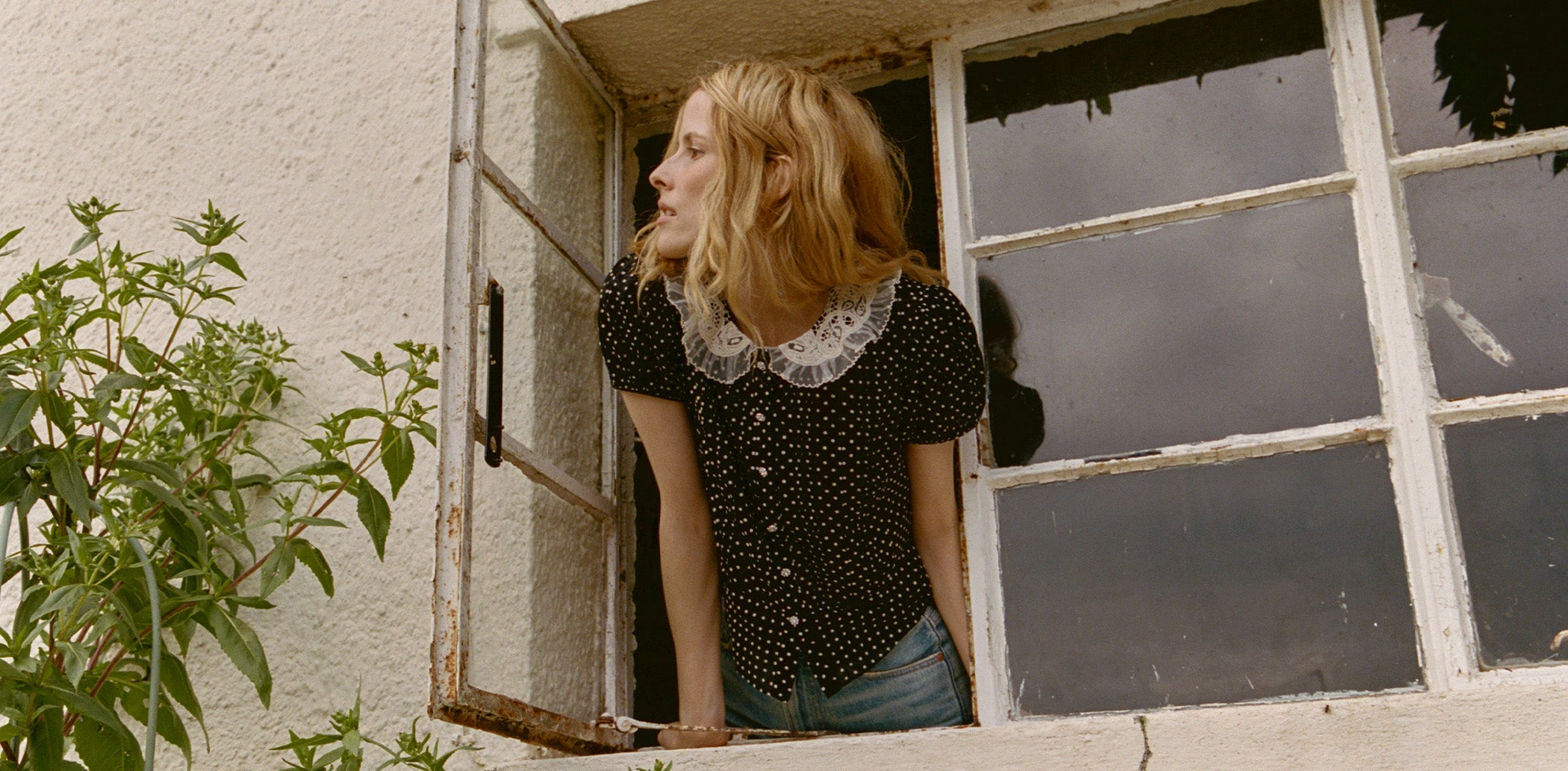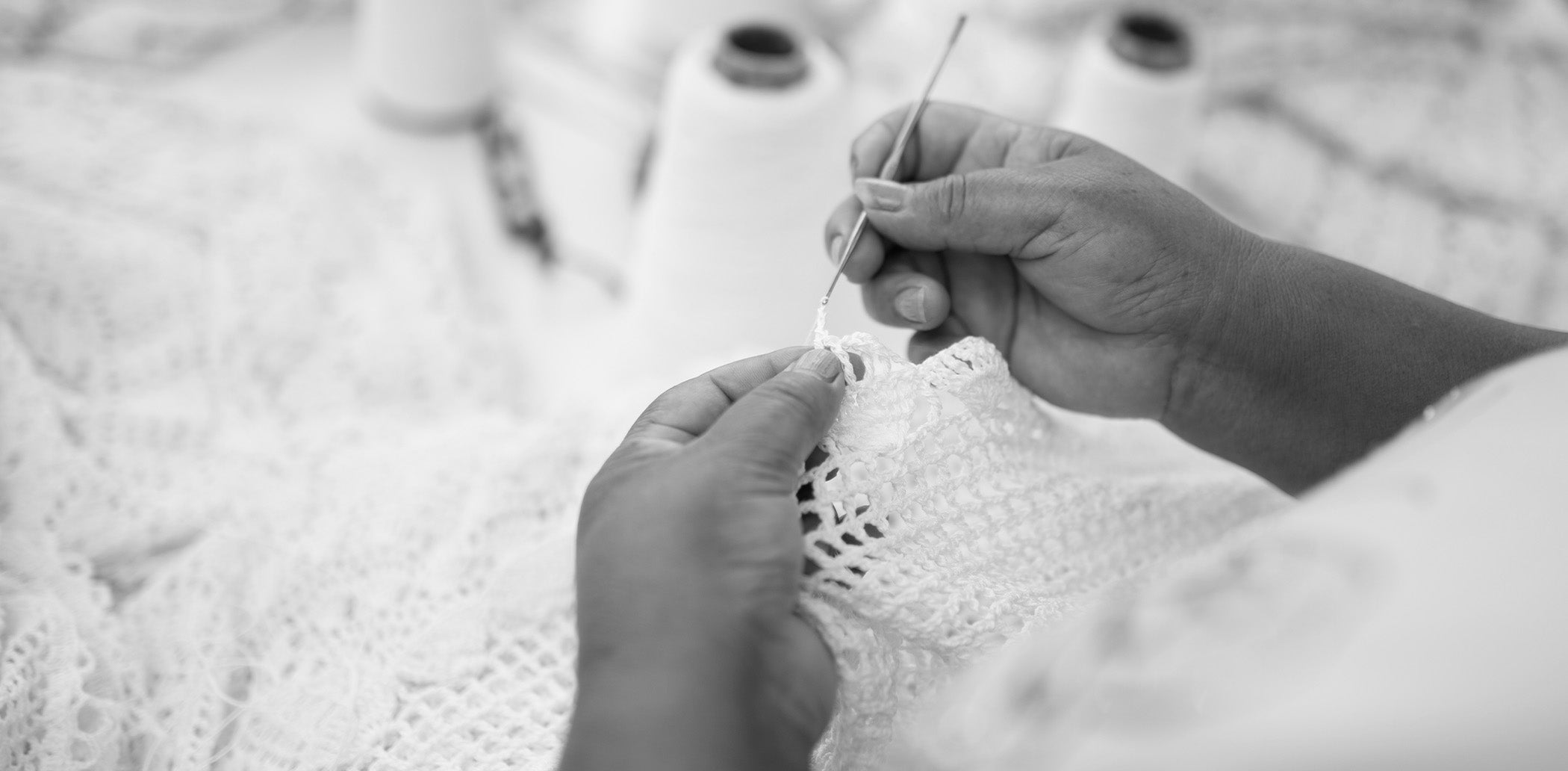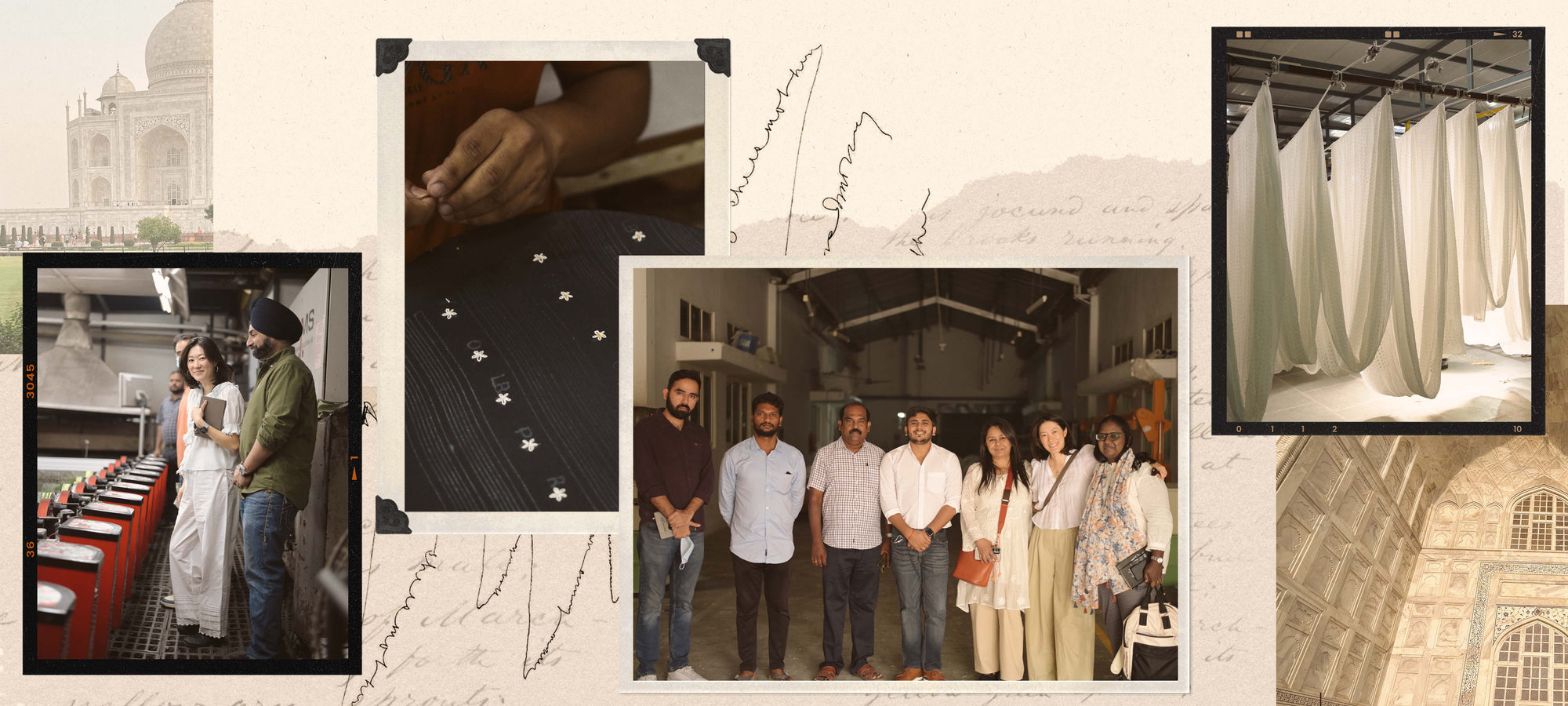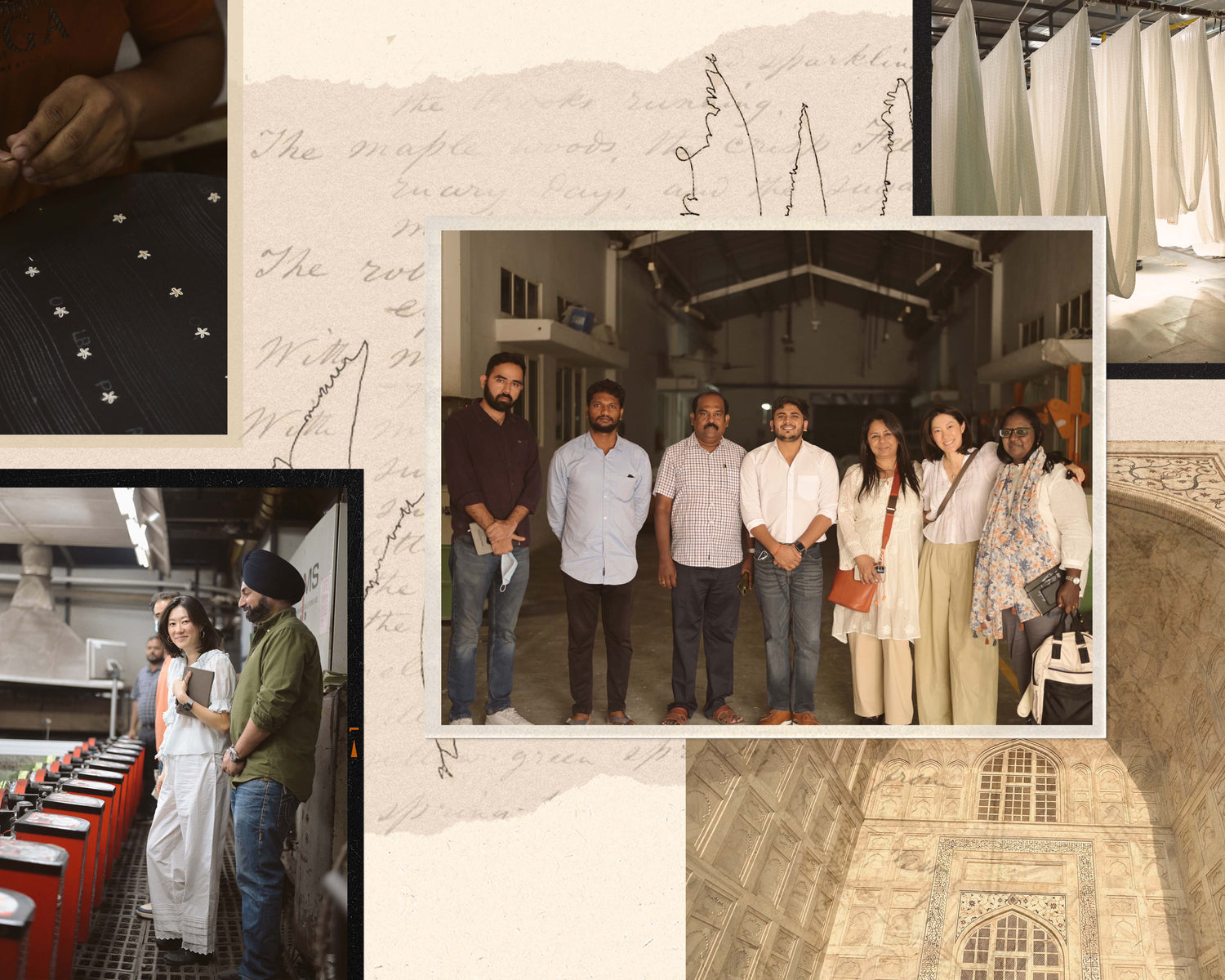Field Notes from India with Kristine Kim
Our Senior Director of Impact & Responsible Sourcing Kristine Kim's holistic approach to improving social and environmental outcomes for the fashion industry is deeply informed by the importance of upholding the human worth of workers across all tiers of our value chain. Her extensive experience and unique wisdom have been (and continue to be) essential to the creation and achievement of our goals for all areas of impact. In 2023, with Kristine’s invaluable guidance, we introduced our 2030 Roadmap: a detailed blueprint of where we currently stand and where we aspire to go in the collective march to 2030. As part of the strategy outlined in our roadmap, Kristine conducts due diligence trips to meet with some of our key partners. Below, Kristine shares notes from her most recent trip to India—where she was able to tour some of our facilities, meet artisans, visit our philanthropical partner Room to Read, and more.
A cornerstone of our 2030 Roadmap is our responsible sourcing strategy—an intentional approach to selecting partners, crafting our garments, and choosing raw materials that align with our values. As part of this strategy, I regularly conduct due diligence trips to key sourcing regions to meet our partners face-to-face and gain a deeper understanding of the working conditions behind each product.
In April 2025, I traveled to India, one of our most important sourcing hubs. This trip allowed me to walk the floors of our garment factories, launch our first women’s empowerment program at the factory level, trace the supply chain of our signature organic cotton voile, and visit our philanthropic partner, Room to Read.
These are my field notes—observations, conversations, and reflections from a journey that underscored the true scale and human impact of our work across the value chain.
On the Ground with Our Factory Partners: Implementing RISE
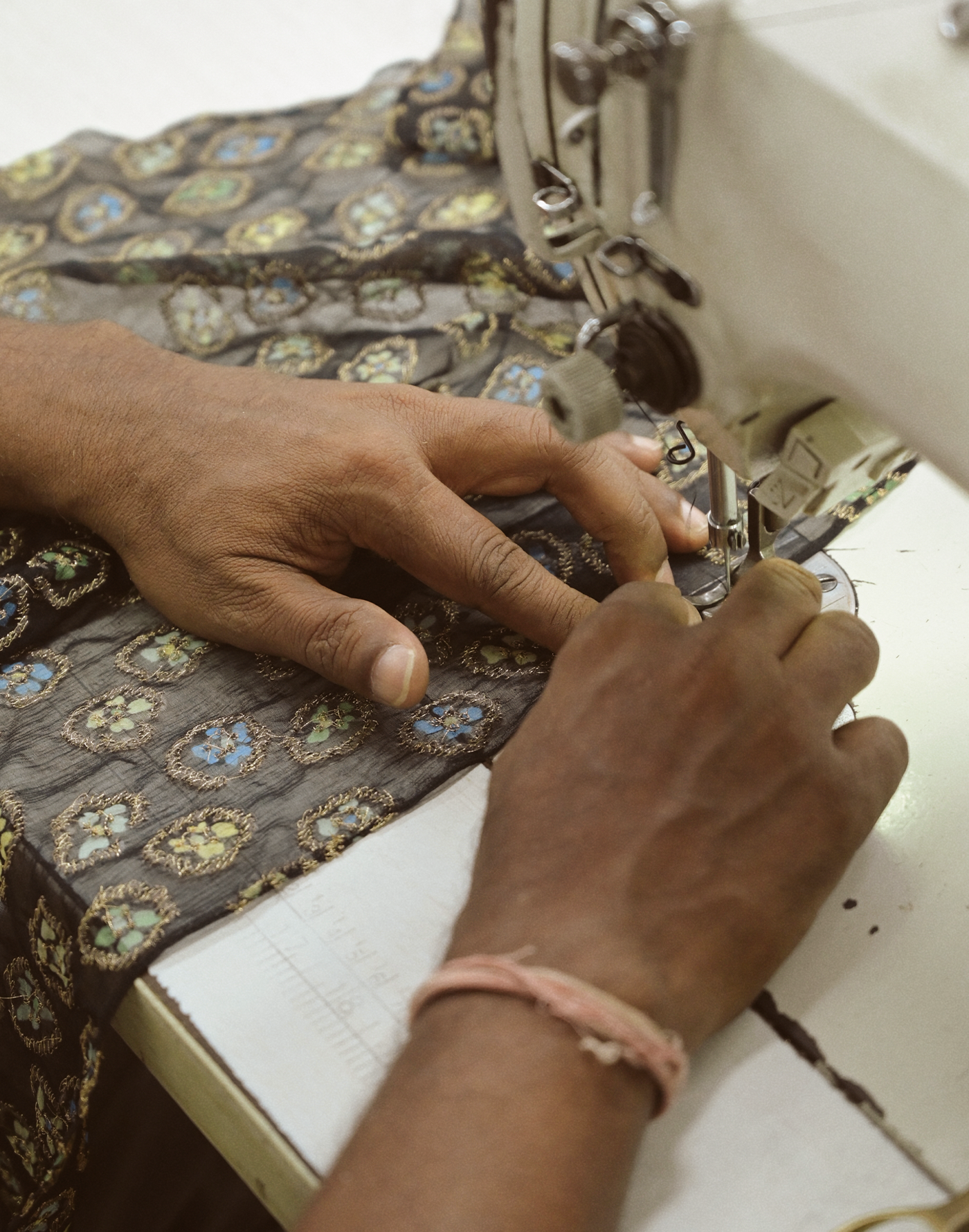
My trip began in Delhi, where I visited several of our production facilities alongside our third-party auditing partner to ensure each unit meets both national and international labor standards. These site visits allow us to go beyond compliance checklists: to listen, learn, and build relationships rooted in shared values.
Garment manufacturing is inherently complex. A single product may pass through multiple facilities across several countries, often making the process feel disconnected. For us, visiting in person is vital. It restores the human connection behind each piece we make and ensures our values are upheld at every step.
A highlight of this trip was launching RISE, a 13-month women’s empowerment program designed to equip garment workers with life skills that extend beyond the factory floor. We’re proud to sponsor this initiative alongside our longest-standing factory partner in India, marking their first-ever worker well-being program. The kickoff meeting, held with RISE leadership, factory management, and local implementation partner Kshitij, was full of energy and optimism.
After the meeting, we toured the factory with Arpita from Kshitij and spoke with several workers who will participate in the program. Many of our garments involve artisanal handwork—delicate beadwork and embroidery executed by master artisans whose skills have been passed down through generations. Their work is not merely decorative; it is cultural heritage rendered in thread. Observing their craft up close was a powerful reminder that this is artistry, not industrial output.
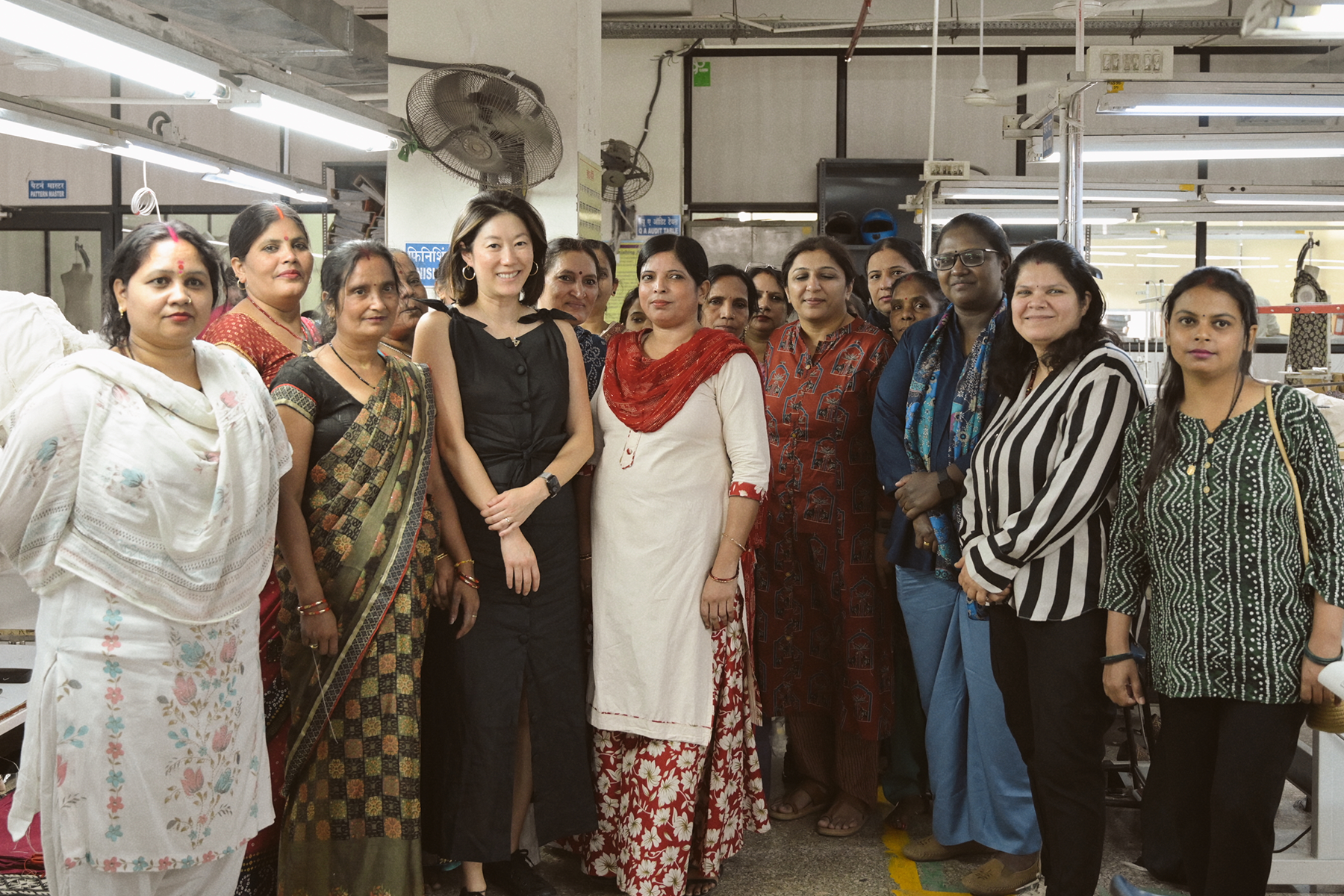
Kristine on the factory floor with RISE and some of the female artisans who will participate in the program.
"Garment manufacturing is inherently complex. A single product may pass through multiple facilities across several countries, often making the process feel disconnected. For us, visiting in person is vital. It restores the human connection behind each piece we make and ensures our values are upheld at every step."
- Kristine Kim
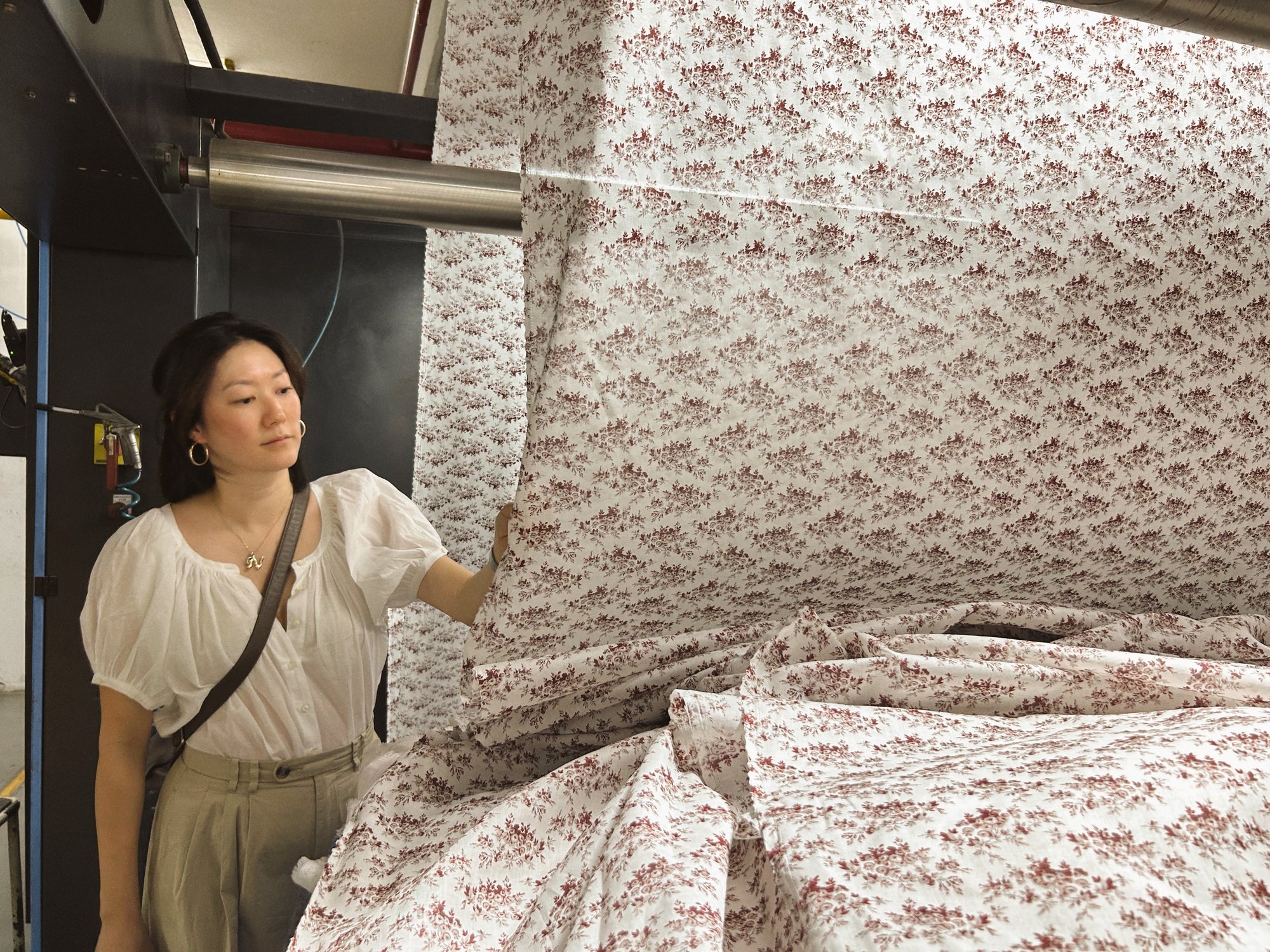
Kristine looks at some freshly printed organic cotton voile for our Fall 2025 collection.
Tracing Our Signature Organic Cotton Voile
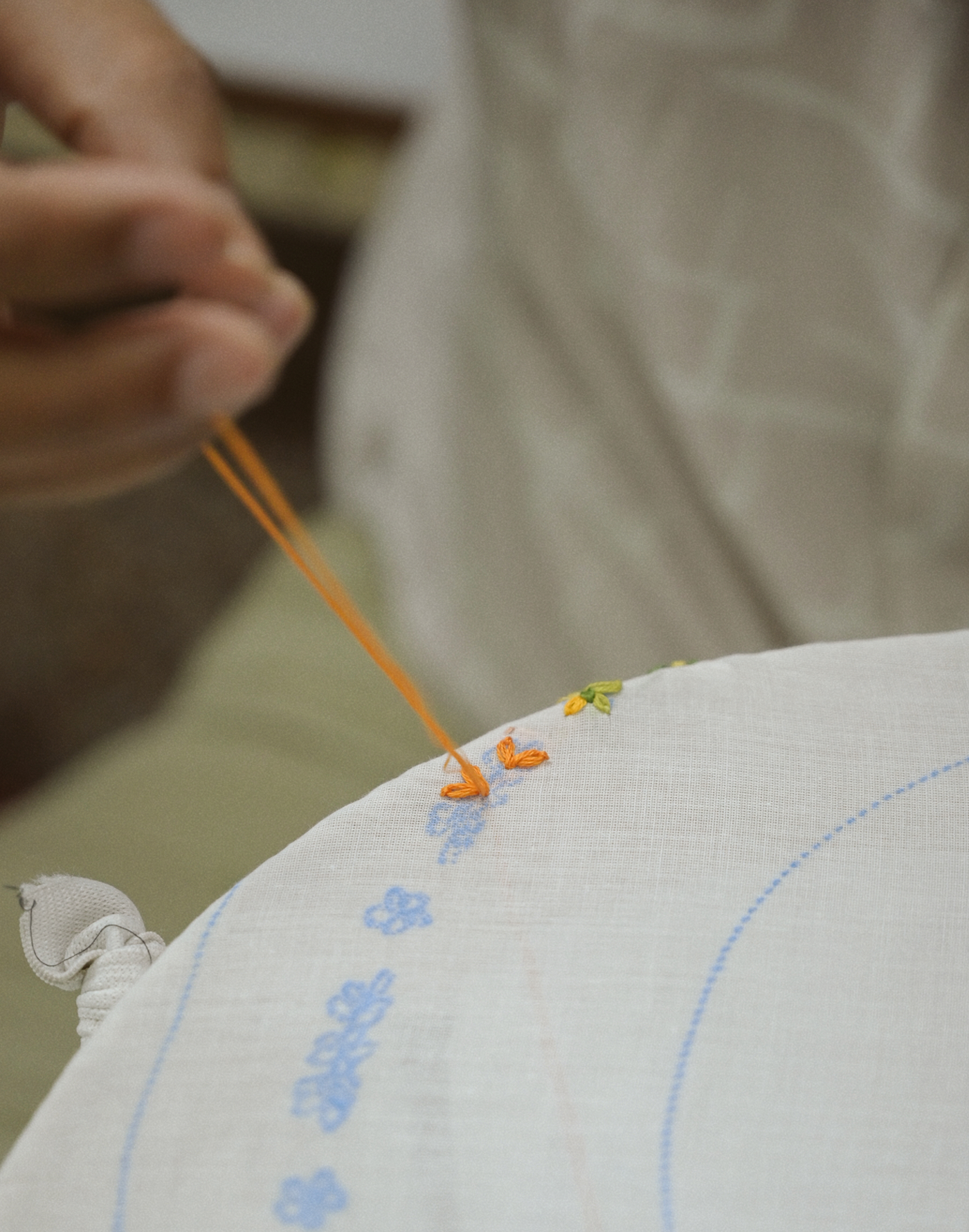
Following a few days in Delhi (and a weekend detour to the Taj Mahal with my dear friend Elena), we flew south to Coimbatore in Tamil Nadu, the region where our signature organic cotton voile is sourced.
It’s still rare for brands to visit the sub-tiers of their supply chains. But for us, transparency means understanding the full lifecycle of our materials—not just where they’re sewn, but where they’re grown, spun, and woven. With the guidance of our Tier 1 factory partner, we visited our Tier 2 fabric mill and Tier 3 yarn spinner. The rhythmic whir of machines filled the air as we followed the process of transforming raw organic cotton into the breezy voile fabric used in favorites like the Henri Top.
Much like our garment-making partners, the artisans at these facilities are highly skilled professionals, each responsible for a specific step in the process. We were also joined by Rohini, our RISE counterpart and a women’s rights expert, who provided crucial context on gender dynamics in the lower tiers of the apparel value chain. These visits gave us direct insight into working conditions, strengthened our relationships with sub-tier partners, and helped us better advocate for ethical practices across all levels of production.
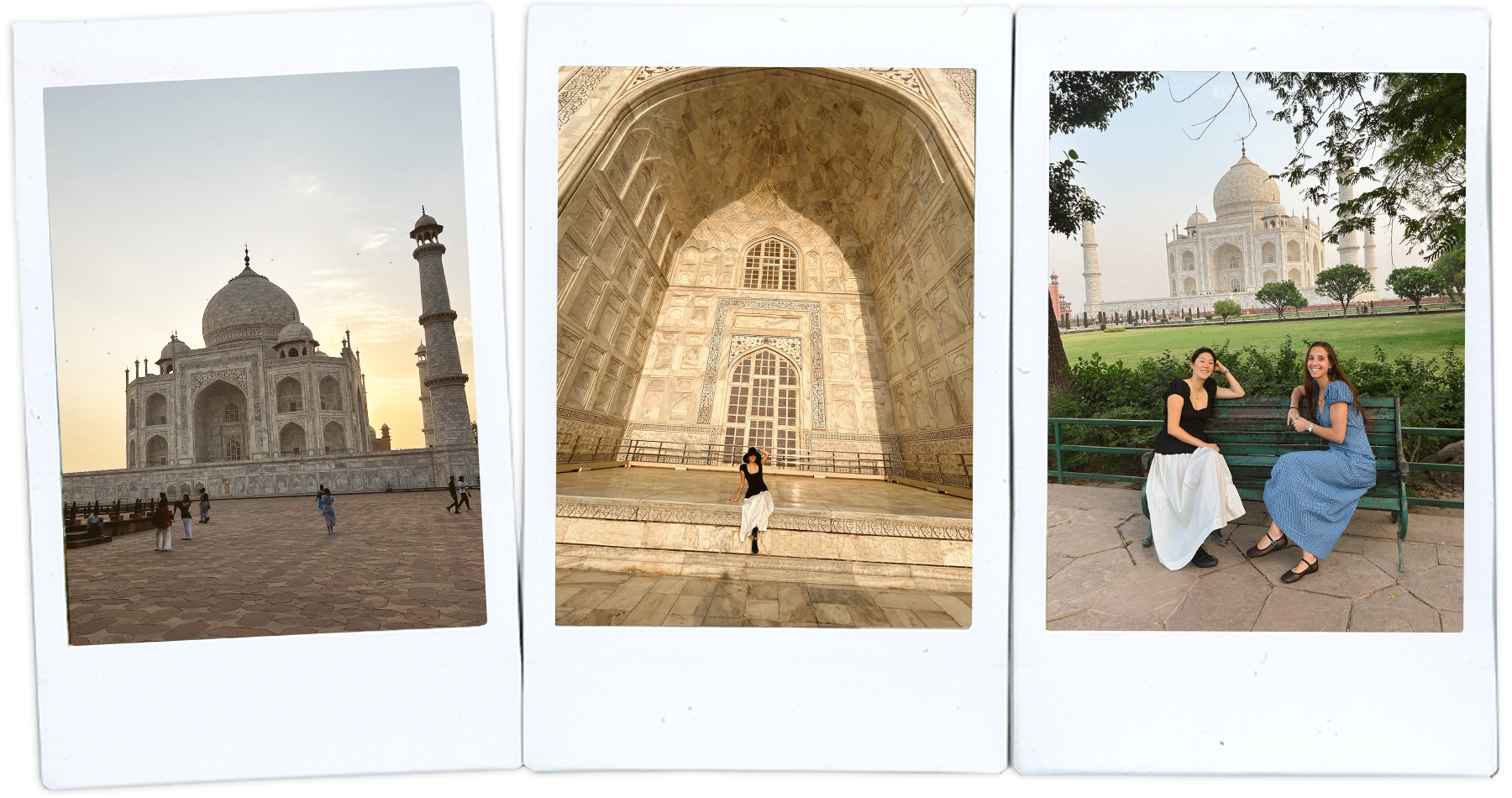
A Visit to Room to Read: Closing the Loop with Purpose
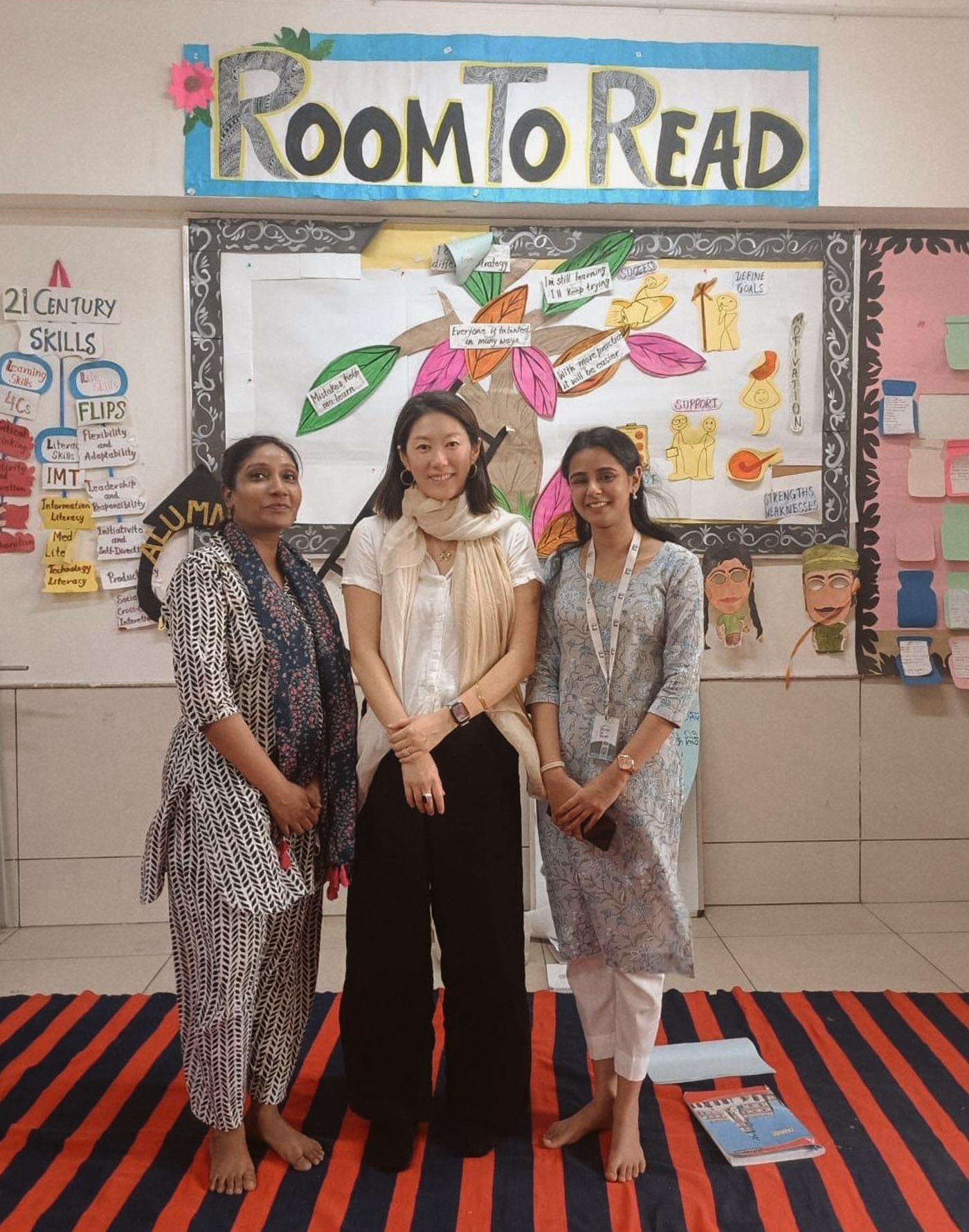
To close out the trip, I visited Room to Read, our long-time philanthropic partner focused on literacy and gender equality in education. Throughout the nearly 10 years of our partnership, we have supported the Girls’ Education Program in India, which increases school enrollment rates, reduces dropout rates, and helps adolescent girls build the life skills they need to thrive.
During my visit, I had the privilege of shadowing a career development session with a group of high school seniors. Each girl shared her hopes and dreams—from becoming doctors to teachers to entrepreneurs, and the barriers she anticipated along the way. I also shared my own story and the work we do at DÔEN. To hear their aspirations and offer support, even briefly, was one of the most moving parts of the journey.
Education is the foundation for a more equitable future, and seeing these programs in action reminded me why our philanthropic commitments are so essential to our brand’s mission.
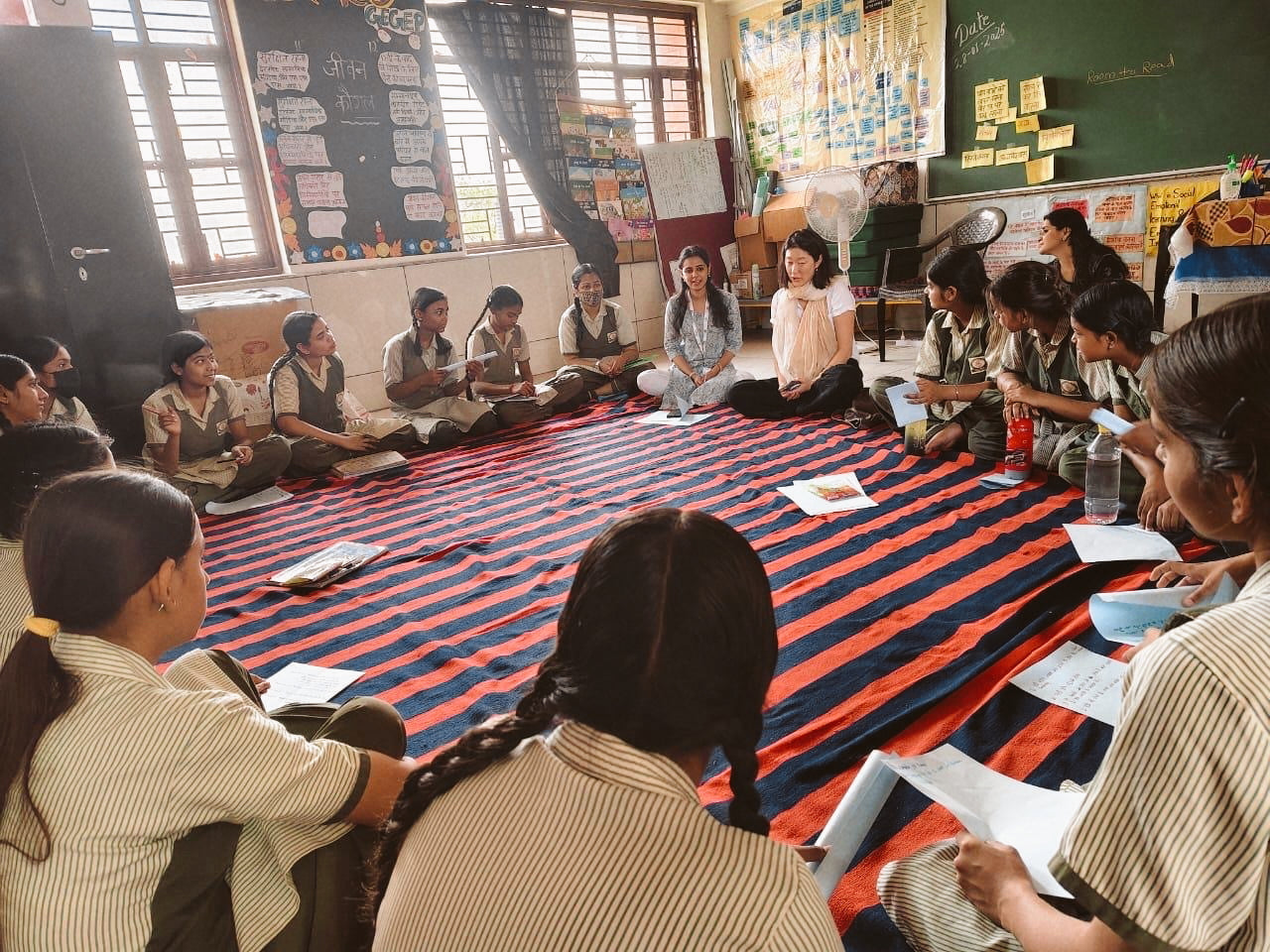
Kristine at a Room to Read career development session with a group of high school seniors, where she chatted with the girls about her career path and experience, and their hopes and dreams for their own futures.
A Look Ahead
This journey through India reaffirmed our belief that fashion can— and must—be a force for good. Responsible sourcing isn’t just about compliance; it’s about connection. It’s about empowering the people who make our garments, honoring the heritage behind our textiles, and investing in the communities that surround our work.
There is always more to learn and more to do. But with each visit, each conversation, and each program launched, we move one step closer to the future we’re working toward: a future rooted in dignity, impact, and shared prosperity.
Thank you for walking with us.

